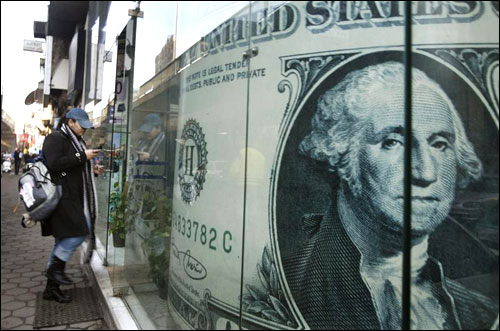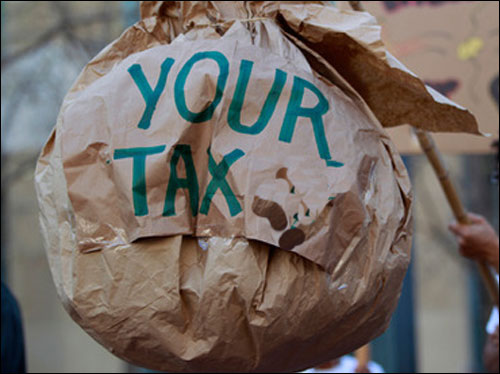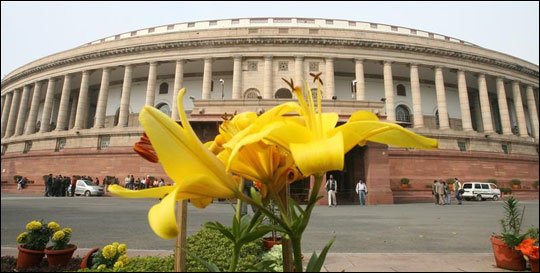 | « Back to article | Print this article |
Rise of the Indian states
But to note how the states have become more proactive and aggressive in securing a larger say in an economic policy sphere that still largely remains the domain of the Union government.
The government of Nagaland, according to newspaper reports, has invited bids from industry for exploration of oil and gas in 11 blocks in the state.
The state has argued that it has special powers to undertake such auctions of natural resources found within its own territory.
The Union ministry of petroleum and natural gas is naturally worried and has sought legal views to check if Nagaland is violating the constitutional provision that reserves for the Centre the exclusive right to exploit oil and natural gas in any part of the country.
Some years ago, Gujarat had proposed to undertake gas distribution within the state, but it had to drop that move since the Supreme Court ruled against it.
Click on NEXT for more...
Rise of the Indian states
The point here is not what Nagaland or Gujarat proposed to do, but to note how the states have become more proactive and aggressive in securing a larger say in an economic policy sphere that still largely remains the domain of the Union government.
The situation, however, is changing rather rapidly. Consider a few recent instances of economic policy making and it becomes amply clear how the states have asserted their rights in a manner that the Union government has been forced to retreat and strike a compromise.
This is nothing but the rise of the states. In some cases, it goes beyond the contours of Centre-states economic relations outlined in the Constitution.
Click on NEXT for more...
Rise of the Indian states
Foreign investment is an area that has solely been the preserve of the Union government, which has over the last many years decided the areas in which overseas companies could be allowed to bring in their capital and the limits on such infusions.
That changed last year when several states opposed the Union government's idea of allowing foreign direct investment, or FDI, in multi-brand retail up to 51 per cent of equity.
In an unprecedented move, to proceed with FDI reforms, the Union government agreed to allow foreign investment in multi-brand retail in only those states that would approve of such investment. This was state power on full display.
The new policy is yet to attract any foreign investor to put in its capital in an Indian state that has welcomed such investment in multi-brand retail, but the idea of a large Indian market as an attractive destination for foreign capital has taken a hit.
Click on NEXT for more...
Rise of the Indian states
What has happened with the proposed goods and services tax, or GST, is another evidence of the rising power of the states. The idea of a GST was mooted almost a decade ago.
By the time the Centre readied a broad framework with a uniform tax rate for all states, uncomfortable questions about the proposed regime trampling on the power of an elected state government to levy taxes surfaced and eventually stalled all negotiations between the Union government and the states.
Last month, the GST talks were salvaged only after the Centre agreed to almost all the demands of states.
What this meant was that states would enjoy the flexibility of a narrow band of tax rates, instead of sticking to a uniform rate.
In addition, the Centre dropped the idea of setting up a dispute settlement authority as demanded by the states and agreed to compensate them for the revenue loss on account of the abolition of the central sales tax.
Click on NEXT for more...
Rise of the Indian states
The shape in which the GST will debut in this country a year or so from now will be vastly different from the manner in which it was originally conceived.
It is easy to see this as the Union government's political pragmatism in accepting a substantially diluted GST framework for adoption so that its fiscal reform agenda can move on with necessary corrections to be introduced as and when these would be possible.
But far more significant than the Centre's political pragmatism is the display of state power in the way the Union government had to bow to the collective desire of the states to amend the GST framework in a manner that it becomes acceptable to them.
Click on NEXT for more...
Rise of the Indian states
It would be naive to see this assertion of state power in the Union government's economic policy sphere only as a natural corollary to the rise of coalition politics at the Centre and the emergence of regional political parties, many of whom now run governments in several states.
Yes, a Union government depending on alliance partners for its survival would be more accommodative in framing economic policies that address concerns of its supporting parties.
Similarly, the rise in the number of regional political parties running governments in states would naturally constrain the Centre's freedom in framing policies that directly or indirectly affect them.
Click on NEXT for more...
Rise of the Indian states
But what has been happening of late is far more interesting and significant. Even if the Congress-led alliance at the Centre decides to allow FDI in multi-brand retail, the state government of Kerala, which too is ruled by another Congress-led alliance, opposes the proposal and disallows foreign investment in the sector.
Similarly, the Bharatiya Janata Party may oppose the idea of FDI in multi-brand retail, but the voice of the Gujarat government, led by the BJP, has remained rather muted on the same issue.
In other words, the states are beginning to act independently, realising perhaps both their power and responsibility to the electorate whose interest they must serve.
It is this awakening of sorts that has made the recent rise of the states a fascinating spectacle, which appears to have many possibilities. Only time will tell how this story unfolds in the coming days.







